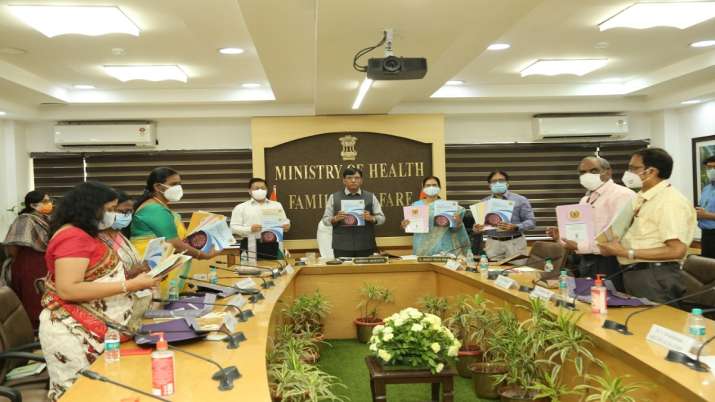
How to deal with long term health problems post covid? The government issues comprehensive guidelines.
The Union Health Ministry on Thursday released the National Comprehensive Guidelines on Post-COVID Management, the Post-COVID Sequel Module, to guide on the long-term health issues of COVID-19 infection. These modules will help in capacity building of doctors, nurses, paramedics and community health workers across India to deal with the long-term effects of COVID.
Union Health Minister Mansukh Mandaviya said on Twitter, “National Comprehensive Guidelines on Post-COVID Management issued to guide on long-term health issues. This will help in preparing and giving appropriate treatment to the patient.”
“This is the first of a series of 7 modules released in India to provide comprehensive guidelines for the medical fraternity. This includes a module for healthcare providers to tackle mental health, which is of utmost importance,” he said.
Mandaviya expressed happiness over the release of the guidelines, saying that these are designed to provide guidance to doctors and health care workers to deal with the issue of long term effects of COVID. He said there is a need for proactive and comprehensive treatment of COVID to ensure minimum side effects and negative effects of treatment.
“We have seen consequences for post-COVID-19 effects in patients with cases of mucormycosis, such as those taking high doses of steroids. It is important to take medications with little or negligible side effects. If we are alert in advance, it would be helpful Dealing with the future consequences of COVID,” Mandaviya said.
“Post-Covid perceptions that pervade our society like fear, mental health issues that arise due to COVID are important to tackle. Hence, it is important to understand and address these post-COVID issues Efforts have been made by resource persons across the country for the management of these post-COVID complications to develop Post-COVID Sequel modules.These are very much designed keeping in mind the various sectors of Healthcare Professionals. There are specific modules,” he said.
Speaking on the occasion, Dr Bharti Praveen Pawar, Minister of State, Union Health Ministry stressed on the need to tackle mental health issues and reach the last mile.
“This pandemic has posed an unprecedented challenge to our health and healthcare system. Mental health care is a major challenge for a country with such a large population. We need to build our capacity to deal with this mental health challenge. is,” she said.
“If frontline workers are equipped with proper knowledge and training, they can become a valuable resource in this fight against these post-COVID challenges. While we are trying to equip ourselves to fight against the COVID consequences, So it is important to take these too. Till the last mile. The training modules for mental health and other issues have been designed based on the needs expressed by the health experts of the state,” he said, adding that we all should work together so that this To ensure that COVID-19 becomes the last human pandemic.
Pawar tweeted, “Today I along with Hon’ble HFM @mansukhmandviya released the POST COVID SEQUELAE MODULES which will be helpful in capacity building of doctors, nurses, paramedics and community health workers across India to recognize multiple posts, diagnose and manage COVID-sequel and provide holistic treatment to COVID-19 survivors and their family members.”
Respiratory syncytial virus (RSV) is emerging as the latest post COVID symptom in infants and young children. Recently, in its first instance in the country, a Delhi hospital also reported five cases of gall bladder gangrene among patients who have recovered from COVID-19.
The major post-COVID complication observed during the second wave of the pandemic was mucormycosis or black fungus. It was more common in people whose immunity was reduced due to COVID, diabetes, kidney disease, liver or cardiovascular disorders, age-related issues, or those taking medications for auto-immune diseases such as rheumatoid arthritis.
(with inputs from agencies)
.